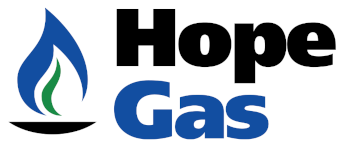Plastics News
March 9, 2022
By Frank Esposito
Senior Staff Writer
PTTGC America, part of Thailand-based PTT Global Chemical Public Co. Ltd., plans to renew an air permit for a proposed plastics and petrochemical complex in Ohio.
PTTGC has cleared land at the site and received $70 million in funding from Ohio, but the company hasn’t made a final decision on the project.
Company officials said Feb. 23 on the firm’s website that PTTGCA “is in the process of drafting an application for an air permit from the Ohio EPA in accordance with its parent company’s Net Zero commitment.”
An existing air permit for the site in Dilles Bottom was issued in late 2018, but expired Feb. 24. Officials added that the resubmission “will be consistent with the ambitious environmental protection goal” announced last year by PTT Global Chemical, PTTGCA’s Thai-based parent company.
PTTGCA has invested more than $300 million in the Ohio project and “has prioritized identifying potential partners in order to move the project forward,” officials said. Daelim Industrial Co. of South Korea withdrew from the project in mid-2020.
“The support and patience of the Ohio River Valley has been crucial to the progress PTTGCA has made toward making the proposed petrochemical complex a reality,” officials added.
The project — first proposed in 2015 — would include polyethylene resin production and would take advantage of low-priced shale gas feedstock that’s been developed in the region in the last decade.
If the plant is built, it would be the second major PE resin complex to be built in the region to take advantage of shale gas feedstocks.
Shell Polymers will open PE plant with 3 billion pounds of annual capacity in Monaca, Pa., later this year. Shell chose the site because of its access to the Marcellus and Utica shale-based natural gas deposits. Natural gas can be converted into ethane and then into ethylene and PE resin. The site will be the first U.S. PE plant built outside of the Gulf Coast in at least 40 years.
In June 2020, a group of engineers, economists and other professionals sent a letter advising against the Dilles Bottom project to the governors of Ohio, Pennsylvania and West Virginia. Dilles Bottom is in close proximity to all three states.
The group included professors from Ohio State University, Carnegie Mellon University and the University of Akron. In the letter, they wrote in favor of clean energy policies, including electric vehicles, energy storage, wind power and solar power.
The letter also stated that “our goals for economic growth and job creation are being undermined by the mistaken belief that the region’s petrochemical and plastics manufacturing industries are poised to greatly expand and … generate large numbers of new jobs.”
PTTGC responded at the time by saying through a spokesman that the proposed petrochemical complex “would be a multibillion-dollar investment that would yield a positive economic impact for generations to come” and that a final investment decision “will be based upon a long view of industry and consumer markets, not temporary fluctuations and trends.”
Also in mid-2020, the viability of the Shell project was challenged by a report from the Lakewood, Ohio-based Institute for Energy Economics and Financial Analysis. IEEFA research was cited in the letter sent to governors. Shell officials defended their project at the time, saying that it’s “particularly advantaged given its proximity to customers and abundant, inexpensive feedstock.”
The Shell and PTT projects and others in the area have been championed by Shale Crescent USA, a trade group based in Marietta, Ohio. Shale Crescent officials have said that these projects are driving reshoring work back to Appalachia and other parts of the U.S.
“Processors will reshore if they know they can get more PE [resin] and have a reliable supply of it delivered by truck,” marketing director Greg Kozera said in a recent interview with Plastics News. “They know they can depend on it.”










